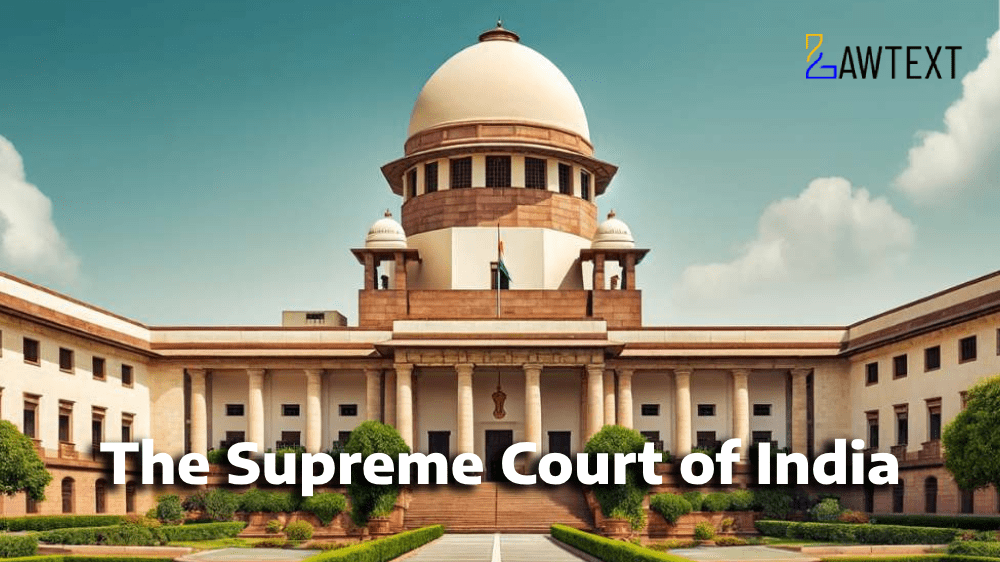CASE NOTE & SUMMARY
The Supreme Court of India reinstated the compensation awarded by the Motor Accidents Claims Tribunal (MACT) to the appellants, reversing the reduction made by the High Court. The Court held that mere continuation of a business by the deceased’s legal heirs does not negate the loss of income and expertise caused by the death of the original business owners. The High Court's approach was contrary to settled law on compensation principles.
Acts and Sections Discussed:
- Motor Vehicles Act, 1988 – Section 166 (Compensation for Accidents)
- Indian Evidence Act, 1872 – Relevance of Income Tax Returns in proving income
- Precedents Discussed:
- National Insurance Co. Ltd. v. Pranay Sethi (2017) 16 SCC 680
- Amrit Bhanu Shali v. National Insurance Co. Ltd. (2012) 11 SCC 738
- Kalpanaraj v. Tamil Nadu State Transport Corporation (2015) 2 SCC 764
- K. Ramya v. National Insurance Co. Ltd., 2022 SCC OnLine SC 1338
Subjects:
Motor Accidents Compensation, Dependency Loss, Multiplier Method, Future Prospects, Loss of Business Income, Judicial Review of Compensation
Facts of the Case:
-
Nature of the Litigation:
The case pertains to compensation claims filed by the legal heirs of two deceased persons who died in a road accident. The High Court reduced the compensation awarded by the Tribunal, leading to an appeal before the Supreme Court.
-
Who is Asking the Court and for What Remedy?
The appellants (legal heirs of the deceased) approached the Supreme Court seeking restoration of the original compensation awarded by the MACT, which was reduced by the High Court.
-
Reason for Filing the Case:
The High Court significantly reduced the compensation awarded by the MACT, reasoning that the claimants continued running the deceased’s business and, therefore, suffered no real financial loss.
-
What Has Been Already Decided Until Now?
- The Motor Accidents Claims Tribunal (MACT) awarded Rs. 58,24,000 for the father and Rs. 93,61,000 for the mother with 7.5% interest per annum.
- The High Court of Madras reduced the amounts to Rs. 26,68,600 for the father and Rs. 19,22,680 for the mother, reasoning that the claimants had taken over their parents’ business.
Issues:
- Whether the High Court erred in reducing the compensation based on the assumption that the dependents had not suffered an actual loss since they continued the business?
- Whether the reduction of compensation violated settled principles of law regarding motor accident claims?
- Whether the multiplier and income calculations applied by the High Court were legally justified?
Submissions/Arguments:
Appellants' Arguments:
- The High Court wrongly assumed that the appellants suffered no loss merely because they stepped into the deceased’s business.
- The Tribunal correctly considered the loss of expertise and business downfall caused by the parents’ deaths.
- The multiplier and income calculations by the High Court were arbitrary and against settled legal principles.
- The High Court’s reliance on the B Parimala v. Riyaz Ahmed judgment was misplaced.
Respondents' Arguments (Insurance Company):
- The claims were exaggerated, and the High Court’s reduction was justified.
- The compensation awarded by the Tribunal was excessive and needed correction.
- The appellants’ business continued generating income, negating financial loss.
Decision:
- The Supreme Court set aside the High Court’s judgment and restored the MACT’s award.
- It ruled that the High Court’s approach was flawed and against settled legal principles.
- The Court reaffirmed that:
- Compensation should not be reduced simply because the legal heirs continued the deceased’s business.
- The proper multiplier and notional income were applied by the Tribunal.
- The High Court’s excessive reduction of the compensation was unjustified.
- The insurance company was directed to pay the compensation within six weeks.
Ratio Decidendi:
- Dependency loss should be calculated considering the deceased’s role and expertise in the business, not merely the continuity of the business itself.
- Compensation should be determined based on the expected loss in profitability and business stability, rather than assuming the heirs will operate it at the same efficiency.
- High Court should not arbitrarily reduce compensation beyond what was challenged by the insurance company.
- Income tax returns and financial documents of the deceased should be the basis for determining compensation.
The Supreme Court reversed the High Court’s order and restored the compensation awarded by the Tribunal, ensuring just compensation for the dependents of the deceased.
Citation: 2025 LawText (SC) (1) 291
Case Number: CIVIL APPEA L NOS. 1162 - 1163 OF 2025 [@ SPECIAL LEAVE PETITION (CIVIL) NOS.33049-33050 OF 2018]
Date of Decision: 2025-01-29
Case Title: S. VISHNU GANGA & ORS. VERSUS M/S ORIENTAL INSURANCE COMPANY LIMITED REP. BY ITS DIVISIONAL MANAGER & ORS.
Before Judge: [SUDHANSHU DHULIA J. , AHSANUDDIN AMANULLAH J.]
Appellant: S. VISHNU GANGA & ORS.
Respondent: M/S ORIENTAL INSURANCE COMPANY LIMITED REP. BY ITS DIVISIONAL MANAGER & ORS.

